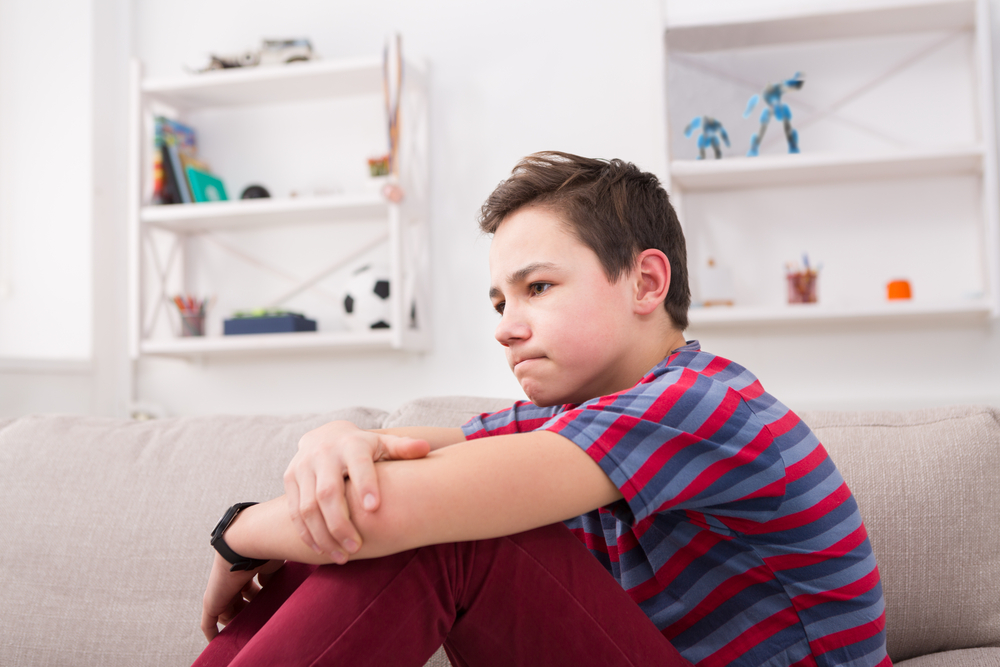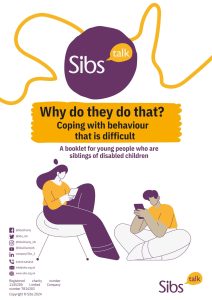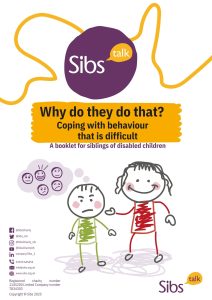When to be concerned about your sibling child
There may be times when your sibling child finds things difficult and when you need more help with supporting them. If siblings are having problems with being bullied, doing too much care, having their sleep disrupted, or being hurt by their brother or sister, it is really important that you take action to protect and support them.
 Signs to look out for in siblings
Signs to look out for in siblings
- Shows changes in behaviour after a hospital stay
- Keeps asking questions about their brother or sister that you cannot answer
- Gets easily annoyed with their brother or sister
- Always complains or tries to get your attention
- Feels very sad or angry or jealous
- Is reluctant to talk to you
- Avoids spending time with friends
- Finds it hard to get their homework done or is falling behind at school
- Is being teased or bullied
- Is helping you care for your child who is disabled or has additional needs
Is your sibling child being bullied?
Some siblings experience bullying and teasing at school because their family is different. Siblings can also be bullied for standing up for their brother or sister who is disabled or has additional needs. It is very important to take bullying seriously and to take action to make it stop.
Warning signs of bulling
- You may suspect bullying if your sibling child shows any of these signs:
- Not wanting to go to school or a club
- Changes in behaviour such as bed-wetting, nightmares
- Becoming aggressive with other children at home
- Refusing to say what’s wrong
- Coming home with cuts or bruises
- Becoming withdrawn or anxious
- Losing belongings
- Becoming upset after checking their mobile
Take action to stop bullying
- If you are worried that your sibling child is being bullied ask them directly about it.
- Believe what siblings tell you and reassure them that you will help sort it out.
- If the bullying is happening in school talk to the teacher or headteacher about it.
- Talk with siblings about their feelings about being bullied.
- Ask siblings what they think should happen next and make sure that they are involved with any plans you make.
- If there are specific times when bullying occurs encourage siblings to be with a friend.
- Look at the advice provided by the anti-bullying organisation Kidscape on how to stop the bullying and support your child with it.
Is your sibling child doing care tasks?
Some families feel that siblings should never have to do anything to help their brother or sister who is disabled or has additional needs. Other families feel that it is expected that siblings will help with care on a regular basis. All children learn responsibility and skills through household chores and helping brothers and sisters and this is an important part of growing up. As a parent of a child who is disabled or has additional needs it is important to check that siblings are not providing more support or care than their peers.
Limit care tasks
- Give siblings choice about the type and amount of support they want to give their brother or sister who is disabled or has additional needs.
- Notice the things that siblings do to support their brothers and sisters and let them know that you appreciate what they do.
- Even if your sibling child is only providing a small amount of care or support at home, inform their school so that allowances are made for this.
Is your child a sibling young carer?
- If a sibling is providing a level of care or undertaking care tasks that really should be done by an adult, he or she is a young carer. Although the support of siblings is useful and sometimes necessary, providing care can affect siblings’ health, wellbeing or school work.
- It is vitally important to talk to your child’s GP or headteacher so that your sibling child can have a young carers’ assessment and so that your family can have more support with care for your disabled child.
- There are local young carer projects that can support siblings who are young carers.
Is your sibling child getting hurt?
Some children and young people show behaviour that challenges as a result of their disability or additional needs. Their siblings may be at risk of being hurt on a regular basis. When a sibling is hurt by their brother or sister it still hurts regardless of the cause of the aggressive behaviour. It can be very frightening and it feels wrong to the sibling. Siblings need their parents to respond appropriately when they are hurt and to take action to prevent them being hurt again.
Protect siblings from aggressive behaviour
If your sibling child gets hurt respond to them immediately – verbally and physically. Comfort them and give any first aid as required. Make sure they are safe from getting hurt again.
- Tell them you are sorry they are hurt and that it must be painful, frightening, upsetting
- Tell your child who is disabled or has additional needs that what they have done is wrong. This may not change their behaviour but it is important for your sibling child to hear you say this.
- Explore all options for help with improving your child’s behaviour and involve your sibling child in any behaviour programme.
- Have an emergency plan for times when the aggressive behaviour gets out of control so that you and your sibling child know how stay safe.
- Download our booklets for older and younger readers to share with your sibling children. These will help them to understand what they can do to stay safe
 Click here to download for older readers
Click here to download for older readers Click here to download for younger readers
Click here to download for younger readers
Is your sibling child's sleep disrupted?
Up to 86% of children who are disabled or have additional needs have sleep problems and many siblings are affected by the impact of this. Regular disturbed sleep affects siblings’ mood, health, and education. Siblings’ sleep may be disturbed because they share a bed or a room with their brother or sister who wakes at night. It may be because their brother or sister is noisy at night or because a sibling is supporting them at night.
Help siblings sleep well
- There is help out there for your child’s sleep problems. Use it and explore all the options for everyone’s benefit. The Children’s Sleep Charity has useful advice on getting help.
- Try out any practical solutions that could help siblings – sleeping in a different room, earplugs at night, having a quiet night’s sleep at a grandparents’ house…
- If a sibling is sharing a bed with their brother or sister with additional needs, move them into their own bed.
- Remove equipment and nappies out of a sibling’s room so that you do not have to disturb them in the night.
- Inform school if your sibling child’s sleep is being disturbed so that adjustments are made for homework and exams.
- If a sibling is providing care at night, ask their GP for help so that other people can do this instead.
Where to get more help for your sibling child
If the self help strategies that you have read on these pages are not improving things for your sibling child, then he or she may need to have more specialist support to help with their wellbeing. You can talk to us at Sibs and we can advise you on where to get further support. The following professionals can support siblings.
- Child and Adolescent Mental Health Service (CAMHS) – can support children and young people with mental heath problems. If your sibling child is having problems with anxiety or depression talk to your child’s GP about a referral to our local CAMHS team.
- GP – can assess siblings’ physical and mental heath and make referrals to other types of support.
- Health visitor – can advise parent carers of very young siblings if their behaviour and development is typical for their age.
- Learning disability nurse – works with children and adults with learning disability and can provide information and advice for siblings about learning disability.
- School counsellor or school nurse – can provide support in school for siblings dealing with emotional issues.
- Sibling group leader – if there is a sibling group or project in your area the sibling group staff may be able to provide one to one support support for a sibling.
- Young carers’ worker – can support siblings who are caring for their disabled brother or sister.
‘Why do they do that’ – Coping with behaviour that challenges
Sibs also has two age-appropriate booklets for older and younger readers respectively which can be used with siblings to explain behaviour that challenges and what they can do to keep themselves safe.
 Click here to download for older readers
Click here to download for older readers
 Click here to download for younger readers
Click here to download for younger readers